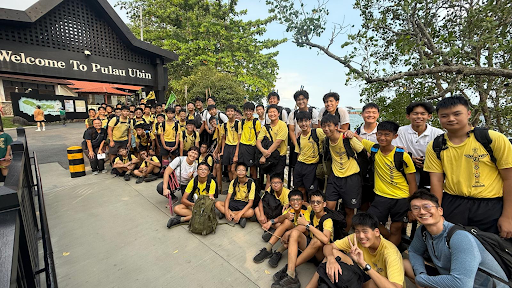SLC Part 2
- Nov 10, 2019
- 3 min read
Updated: Jan 16, 2020
By Joshua Low and Siauw Yu Hern

From 8 to 10 November, the Scouts attended the Scout Leadership Course Part 2 held in Catholic High School. Throughout the camp, we grew, bonded and realised our inner potential as leaders. The countless leadership opportunities given allowed us to take up new responsibilities which prepared us for future leadership positions. Through the leadership rotation system, we experienced the upcoming leadership roles we would have to take up in the future.

One of the key leadership skills the scouts had to learn was awareness. Awareness of self, awareness of others, awareness of surroundings and awareness of weather. Adapted from Sun Tzu's Art of War, this is the first step to good leadership. To be aware of yourself is to understand your strengths and weaknesses and know your limits. This is the first step to improving yourself, where you work on your weaknesses and try to push your limits. One way the scouts put this into practice was during the pioneering component of the camp, where many scouts had to push themselves physically under the hot sun to maintain a high standard of knots.
Knowing others, is the next aspect of leadership. It is important to know what you can offer and contribute to your patrol, such as volunteering to do tasks that you know suit your strengths and delegating tasks to others that you know can do a better job than yourself. A good leader can delegate tasks to the best man for the job, allowing the patrol to achieve speed and efficiency. This was put to the test during their cooking competition and backwoodsman cooking, where the scouts had to delegate cooking to their best cooks, fire handling to their best fire handlers and so on.
It is also an important factor when deciding the amount of time to be given for an activity, where you have to consider the efficiency and limits of the patrol members at the same time. For those who were SPL, many of them had to make judgement calls on the target timing for the whole troop to finish an activity, based on his perception of his troopmates' abilities.
Awareness of the terrain and weather is also crucial, as scouts had to work with the space and materials given to them. This was best demonstrated during backwoodsman cooking, where the scouts had to stay organised and hygienic in order to carry out the activity safely.

Besides awareness, the scouts also had to learn how to communicate effectively as both leaders and followers. During supper and bathing, the SPL had to coordinate two concurrent activities in two different locations, and this forced him to give clear instructions to be followed so as to avoid overrunning the time. Another example was during strike camp, when the SPL had to coordinate the tear down of the campsite as efficiently and effectively as possible. In order to do this, he had to coordinate all 8 patrols to simultaneously take down their campsite so as to centralise many processes such as washing of equipment and returning them to store.
Through this camp, the scouts gained much needed experience on how to lead others more efficiently. It also helped them train their stress management as they had to shoulder heavier responsibilities while making clear, good decisions. To many of them, the badge and certificate they got were not important; it was the experience and knowledge that they brought home which defined the camp.




Comments